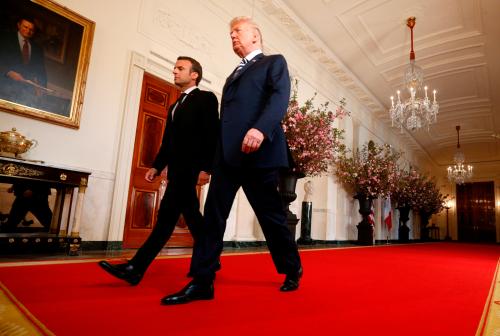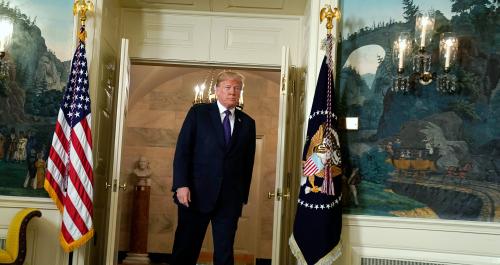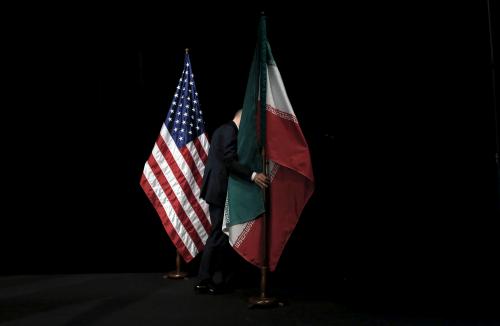President Trump’s May 12 decision on whether to waive U.S. nuclear sanctions on Iran—the latest requirement to sustain Washington’s part of the bargain as part of the Joint Comprehensive Plan of Action (JCPOA)—is being watched closely in the United States and around the world. The deadline comes amid dramatic changes in the administration’s national security team, in the wake of visits to Washington by French and German leaders (and following U.S.-France-U.K. airstrikes in Syria), and ahead of an anticipated summit between President Trump and North Korean leader Kim Jong-un about Pyongyang’s nuclear program.
What is the decision that President Trump faces on May 12, and how could that cascade into broader disintegration of the deal? What is the significance of the Iran nuclear agreement for Americans and the world? What do European parties to the agreement think, and what would it mean for U.S. credibility in the world if Trump were to walk away?
Below, Brookings senior fellows Suzanne Maloney and Thomas Wright answer these questions and more. Learn more about what Brookings experts are saying about Iran here.







Commentary
Watch: Experts explain what’s at stake on the Iran nuclear deal
May 4, 2018